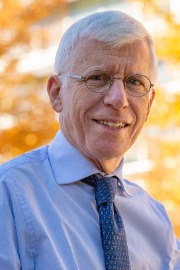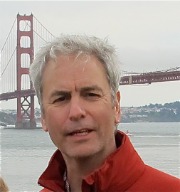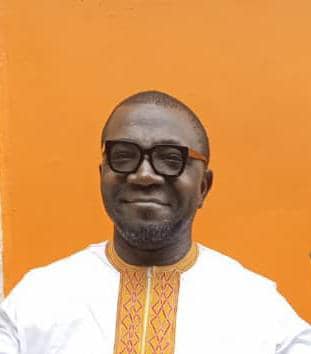The Scientific Advisory Group on Air pollution and Health (SAG) was convened by the World Health Organization (WHO) in 2019.
The SAG provides expert guidance and advise WHO on programmatic issues related to ambient and household air pollution and health. The SAG also advise on emerging research questions and needs related to the implementation of road map and global strategy addressing air pollution and health. The group is also expected to identify key topics and emerging issues to be discussed and tackled by the Global Air Pollution and Health – Technical Advisory Group (GAPH-TAG).
Role and responsibilities:
- Provide high-level global strategic advice and support WHO’s air pollution and health vision and strategy, thereby facilitating WHO’s positioning and comparative advantage in the subject to enable maximum impact;
- Review the air pollution and health interventions landscape and advise the WHO Secretariat on feasible and cost-effective interventions areas for the health sector to engage more actively;
- Support WHO’s continued leadership position as a reliable and consistent source of information for estimates of air pollution and health at national, regional and global levels by providing independent technical guidance on methodologies to conduct air pollution exposure assessment, incl. guidance on monitoring and forecasting for public health purposes and advising on air pollution health impacts assessments methodologies;
- Advise on specific topics that have to be addressed with the GAPH-TAG;
- Identify evolving challenges and emerging needs that the WHO team should address as well as opportunities for new activities; and
- Through their professional network, support the WHO to identify additional relevant future SAG Members in less-represented from a gender and geographical perspective.
SAG Members
Annette Peters directs the Institute of Epidemiology at Helmholtz Munich – German Research Center for Environmental Health – and is full Professor of Epidemiology at the Ludwig-Maximilians-Universität München, Germany. She studied biology and mathematics in Germany and epidemiology at the Harvard School of Public Health, Boston, USA. She pioneered work identifying the link between ambient particulate matter and cardiovascular disease. Today, Dr. Peters heads the population-based KORA cohort initiated in the mid-eighties in Augsburg, Germany and is a principal investigator of the German National Cohort, responsible for building its central biorepository. A long-standing interest is to understand the role of ultrafine particles in a world with changing energy generation approaches. Her research interest are age-related and chronic diseases. Specifically, she strives to improve the understanding of the role of environmental factors on disease development by integrating lifestyle factors, molecular and imaging markers. |  |
 | Francesco Forastiere, MD, Ph.D., is with the National Research Council (CNR) in Palermo, Italy and is visiting professor at King’s College, London. He has served for 37 years as a public health officer the Department of Epidemiology, Lazio Region Health Service, Rome. With a medical background in respiratory and occupational medicine, Master of Science in Epidemiology (LSHTM) and Ph.D. in Epidemiology (Linkoping, Sweden), he has conducted studies on the health effects of numerous environmental and occupational exposures. PI in several EC funded projects. Author or co-author of more than 600 full papers in the peer-reviewed scientific literature. Temporary adviser for WHO/Geneva/Bonn and IARC/Lyon on several occasions. Chief Editor of the Italian Journal of Epidemiology (Epidemiologia & Prevenzione) and Associate Editor of Environmental Health. He has focused on the application of scientific research findings to a wide range of public health issues, including air pollution, radon, waste disposal, occupational exposure to silica and asbestos, and environmental tobacco smoke. |
Jonathan Samet, a pulmonary physician and
epidemiologist, is professor and former Dean of the Colorado School of Public
Health. His research has focused on the health risks of inhaled pollutants in
outdoor air and also indoor pollutants including secondhand smoke and radon. He
has also investigated the occurrence and causes of cancer and respiratory
diseases, emphasizing the risks of active and passive smoking. He has
served on and chaired numerous committees concerned with the
environment, tobacco control, and health. From 2008-2012, he chaired the
U.S. EPA Clean Air Scientific Advisory Committee. He was a member of the
Working Groups for the 2005 and 2021 updates to the WHO Air Quality
Guidelines. He was elected to the National Academy of Medicine in 1997
and received the David Rall Medal in 2015 for his contributions.
|  |
 | Joshua Rosenthal is a Senior Scientist at the Fogarty International Center of the U.S. National Institutes of Health (NIH). He is an ecologist with a longstanding interest in the integration of public health, environment, and international development. Dr. Rosenthal leads NIH research and policy activities in Household Air Pollution research, including the Clean Cooking Implementation Science Network, and a multi-national trial to define the health benefits achievable through a clean cooking intervention in low and middle-income countries (HAPIN). He founded and co-leads the NIH Climate and Health working group, is a project scientist on the NIH-CDC-IDRC supported GEOHealth program (Global Environmental and Occupational Health) and is the NIH Program lead for the Global Alliance for Chronic Diseases. Dr. Rosenthal completed his Ph.D. and post-doctoral research at the University of California, Berkeley. He subsequently completed an AAAS Science and Diplomacy Fellowship at the NIH, and was a Senior Fulbright Fellow at the University of Buenos Aires, Argentina. His publications can be found at: https://scholar.google.com/citations?hl=en&user=BztHZSIAAAAJ |
Kalpana Balakrishnan obtained her undergraduate degree from the All India Institute of Medical Sciences, New Delhi, and subsequently her doctoral and post-doctoral training at the Johns Hopkins University, USA. She is a leading global environmental health scientist in India, spearheading research and academic efforts in the areas of health effects of air pollution and chemical risk assessment. Her primary scientific contributions are centered on (i) developing novel exposure assessment approaches to characterize the complex exposures experienced by rural and urban populations in LMICs and (ii) designing and conducting strategic epidemiological investigations in India to catalyze policy level actions by leveraging across the national and global pools of evidence. She has published extensively meriting an H-Index of 51 and more than 50,000 citations to her credit. In 2020, she was ranked among the top 2% of scientists in the field of General and Internal Medicine in an independent study conducted by Stanford University. She has contributed to several national and international technical assessments concerned with air quality including the Global Burden of Disease and Comparative Risk Assessments, The IARC Monographs, The Global Energy Assessments, The World Health Organisation Air Quality Guidelines and India State level Burden of Disease Initiative. She is also a Fellow of the National Academy Of Medical Sciences, India. She currently serves as member of the National Steering Committee on Air Pollution Related Issues for Health Effects for the Ministry of Health Govt. of India and the Indian Council for Medical Research led National Task Force for assessment of impact of initiatives to promote clean household energy. |  |
 | Markus Amann, former Program Director at the International Institute for Applied Systems Analysis (IIASA), has decades of experience in policy analyses on cost-effective air quality management strategies in Europe and Asia. He has led the development and application of integrated assessment models for the control of greenhouse gas emissions and air pollution, working closely with, inter alia, the European Commission, the Convention on Long-range Transboundary Air Pollution and the World Bank. He has published extensively in the scientific literature and serves on several scientific advisory panels including the Science Advisory Panel of the Climate and Clean Air Coalition (CCAC) and Science Panel of the Asian Pacific Clean Air Partnership (APCAP). He received his PhD from the University of Karlsruhe, Germany and has a background in engineering and economics. |
Michal Krzyzanowski is an environmental epidemiologist, holding honorary position of a Visiting Professor at the Environment Research Group at the School of Public Health of the Imperial College London. He is active as an expert consultant for WHO, UN Env and other organizations, a.o. as a member and co-chair of the WHO Guidelines Development Group. Until 2012, he was a Head of WHO European Center for Environment and Health. |
|
 | Gerard Hoek has more than 25 years experience in performing research in environmental epidemiology, with a focus on air pollution exposure assessment and air pollution epidemiology. He has been senior scientist in more than 10 EU funded multi-center studies in the field of environmental health, serving as the principal investigator for IRAS. He coordinated the EU funded multi-center study RUPIOH, a three year project of indoor-outdoor relationships and health effects of fine and ultafine particles. He recently coordinated exposure assessment within the ESCAPE and ongoing ELAPSE project, together with dr de Hoogh (Swiss TPH). He has been advisor of US EPA, EU, WHO, Health Effects Institute and other national and international bodies. Between 2005 and 2007 he was elected councillor of the International Society for Environmental Epidemiology (ISEE). |
Bertrand Hugo Mbatchou Ngahane is currently a Professor of pulmonary medicine in the University of Douala. He is a consultant in Respiratory and Occupational Medicine at the Douala General Hospital in Cameroon. He is the President of the Cameroon Chest Society, the Vice President of the Pan African Thoracic Society and is member of several international scientific organizations. He is also the secretary of the Adult & Child Lung Section of the International Union Against Tuberculosis and Lung Diseases and is a member of the Scientific Committee of the Union Conference. Pr Mbatchou is a Fellow of American Thoracic Society since 2019. His research interest includes asthma, COPD, air pollution, and occupational medicine. He is passionate in research on air pollution and he recently participated to the production of the Air pollution and health training toolkit for health workers. He has been collaborating on research on household air pollution since 2015 with University of Liverpool and is currently a co-investigator in CLEAN-Air(Africa) Unit, a NIHR funded project. He is author and co-author of more than 80 scientific articles in various field of health. |  |
Past member:
Related health topics

